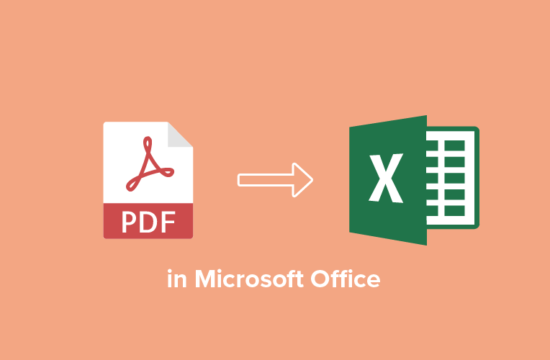In today’s digital world, online reviews play a crucial role in shaping a business’s reputation. Google Reviews, in particular, are vital because they appear prominently in search results. Potential customers often look at these reviews to gauge the quality and trustworthiness of a business before making a decision. Understanding the significance of Google review management is essential for any business that wants to thrive. Proper management helps businesses maintain a positive online image, attract new customers, and build lasting relationships with existing ones. With so many consumers relying on reviews to inform their choices, managing your online reputation has never been more critical.
Understanding Google Reviews
Google Reviews are customer-generated feedback that appears on Google’s platform, allowing users to rate and comment on businesses. These reviews can significantly impact how a business is perceived. A higher number of positive reviews can enhance a business’s credibility and attract more customers. Conversely, negative reviews can deter potential customers and harm a company’s image. Understanding how Google Reviews work and their influence on consumer behavior is essential for businesses. They are not just a reflection of customer satisfaction; they also affect search engine rankings. Therefore, a solid strategy for gathering and responding to these reviews can lead to improved visibility and trust in the marketplace.
Benefits of Managing Google Reviews
Managing Google Reviews effectively offers numerous benefits. Firstly, it helps build trust with customers. When businesses actively respond to reviews, it shows that they value customer feedback and are committed to improving their services. Secondly, managing reviews enhances online visibility. Google tends to rank businesses with higher ratings and more reviews higher in search results, making them more likely to be seen by potential customers. Additionally, engaging with reviews—both positive and negative—can lead to improved customer engagement. It creates a two-way conversation that can foster loyalty and encourage repeat business. Ultimately, effective review management is a key element in a business’s overall marketing strategy.
Strategies for Effective Google Review Management
To effectively manage Google Reviews, businesses should adopt a proactive approach. One key strategy is encouraging customers to leave reviews after their purchase or service experience. This can be done through follow-up emails or prompts on receipts. Secondly, businesses should actively respond to reviews, both positive and negative. Thanking customers for positive feedback reinforces good relationships, while addressing negative reviews professionally can turn a dissatisfied customer into a loyal one. It’s also important to create a consistent review management process, ensuring that all reviews are monitored and responded to in a timely manner. By implementing these strategies, businesses can cultivate a positive online presence.
Encouraging Customers to Leave Reviews
One of the most effective ways to manage Google Reviews is to encourage customers to leave their feedback. This can be accomplished through various methods. After a purchase or service, businesses can send a follow-up email thanking the customer and kindly asking them to share their experience. Including direct links to the review page makes the process easy and straightforward. In-store signage can also serve as a reminder for customers to leave reviews. Offering incentives, like discounts on future purchases, can further motivate customers to participate. By creating an environment where leaving a review is easy and appreciated, businesses can significantly increase the volume of customer feedback.
Responding to Positive Reviews
Responding to positive reviews is a powerful way to show appreciation and foster customer loyalty. When a customer takes the time to leave a positive comment, acknowledging their feedback is essential. A simple thank you can go a long way in making customers feel valued. It also demonstrates to potential customers that the business is engaged and responsive. Personalizing responses by mentioning specific details from the review can create a deeper connection. Additionally, sharing positive reviews on social media can further enhance a business’s reputation and attract new customers. By actively engaging with positive feedback, businesses can create a supportive community and encourage more customers to share their experiences.
Handling Negative Reviews Professionally
Negative reviews can be challenging, but how a business handles them can significantly impact its reputation. The first step is to remain calm and professional. Responding quickly is crucial; it shows that the business cares about customer feedback. Acknowledge the issue raised in the review and apologize if necessary. Offering to resolve the problem offline can demonstrate a commitment to customer satisfaction. It’s important to avoid getting defensive or confrontational, as this can escalate the situation. Instead, focus on finding a solution and learning from the feedback. Handling negative reviews professionally can turn a potentially damaging situation into an opportunity for improvement and customer engagement.
Tools for Managing Google Reviews
There are several tools available to help businesses google review management more effectively. These tools can streamline the review monitoring process, making it easier to track customer feedback and respond promptly. Popular options include software that aggregates reviews from multiple platforms, allowing businesses to see all their feedback in one place. Some tools offer features like automated review requests and response templates, saving time and effort. When selecting a tool, businesses should consider factors such as ease of use, integration capabilities, and customer support. Utilizing the right tools can significantly enhance a business’s ability to manage its online reputation.
Measuring the Impact of Your Review Management Efforts
To ensure that review management strategies are effective, businesses must measure their impact regularly. Key metrics to track include the number of reviews received, overall star ratings, and customer sentiment. Analyzing trends over time can help businesses understand what works and what doesn’t. Additionally, monitoring changes in customer engagement, such as increased foot traffic or website visits, can indicate the success of review management efforts. By continuously evaluating performance, businesses can make informed decisions and adjust their strategies to better meet customer needs. This data-driven approach can lead to sustained improvement in online reputation and customer satisfaction.
Best Practices for Ongoing Review Management
Ongoing review management is crucial for maintaining a positive online reputation. Regularly monitoring reviews ensures that businesses can respond to customer feedback promptly. Setting up alerts for new reviews can help in this process. It’s also essential to maintain an active online presence, engaging with customers across various platforms. Training staff on proper review response etiquette can ensure consistency in messaging. Encouraging a culture of feedback within the organization can lead to continuous improvement in services. By implementing these best practices, businesses can create a robust review management system that fosters trust and encourages customer loyalty.
Conclusion
In conclusion, managing Google Reviews is a vital aspect of any successful business strategy. By understanding the importance of online feedback and implementing effective management practices, businesses can enhance their reputation, build trust, and engage more meaningfully with customers. Whether encouraging reviews, responding thoughtfully, or using tools to streamline the process, every step taken toward effective review management can lead to significant benefits. As the digital landscape continues to evolve, prioritizing Google review management will ensure that businesses not only survive but thrive in a competitive marketplace.




